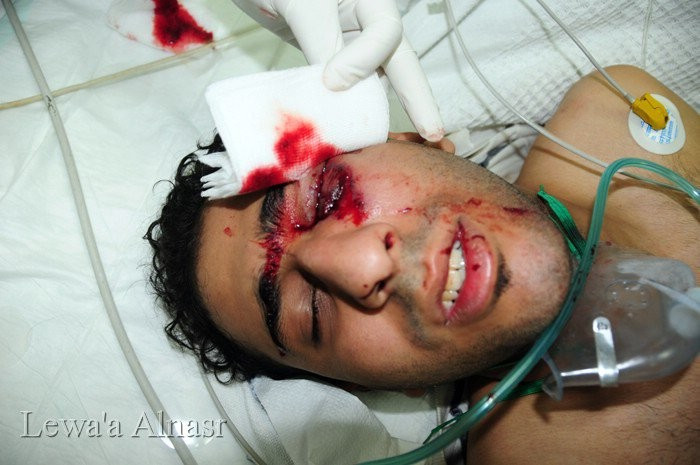Understanding Bahrain: Al-Wefaq, Hezbollah, Iran and the Kingdom's Monarchy
Iran and Hezbollah have been increasingly accused of joining forces with the opposition group al-Wefaq to topple the government of Bahrain, further clouding an already complicated situation in the country.
The kingdom has not been immune to the activities of the Arab Spring. Since it began in February 2011, members of the Shia majority have taken to the streets to call for greater political freedom.
Tensions rose following confrontations with the security forces and protesters began to demand an end to the ruling monarchy of King Hamad bin Isa al Khalifa.
The regime was accused of mounting a brutal crackdown on protesters. In an effort to address charges of human rights abuses in its response to the unrest, the government formed and funded an Independent Commission of Inquiry, which confirmed that detainees had been tortured and subjected to other forms of physical and psychological abuse.
The commission was, however, criticised for failing to name individuals in its report and activists complained that no one was ever prosecuted for violating their human rights.
While the government claims that all abuse has stopped, activists like Nabeel Rajab, the director of the Bahrain Centre for Human Rights, has since documented fresh cases of abuse and the continued use of torture in the ongoing repression of Shia protesters.
The al-Wefaq National Islamic Society has led the protests and, according to videos recently uploaded on to the internet, the political party is now calling for a jihad against the government.
Al-Wefaq, an Iran-Hezbollah Tool?
Since the Shia uprising began early last year, the state-run Bahrain News Agency broadcast several reports linking al-Wefaq to Iran and Hezbollah.
In a report sent to the UN, the kingdom's government also accused Hezbollah of training newly recruited activists at camps in Lebanon and Iran.
There have also been allegations that Hezbollah leader Hassan Nasrallah and other senior officials from the organisation met with members of al-Wefaq to fuel protests against the government, along with claims that Shia groups used Hezbollah's television channel, al Manar, to mobilise protesters.
Supporters of the regime have further accused Hezbollah and Iran of using the opposition to challenge the rule of the Khalifa family, describing al-Wefaq as the Bahraini branch of Hezbollah.
Members of al-Wefaq have studied in Iran and Iraq. Ali Salman, the organisation's leader, was educated at the theological centre of Qom.
In 1995, he was forced to leave Bahrain for Dubai after leading a popular campaign calling for political reforms, but was able to return to the country in 2001 after being granted amnesty by the king.
Sheikh Isa Qassim, the spiritual leader of the group, is viewed by many as the real power behind al Wefaq.
Qassim was also educated abroad and studied at some of the most prestigious religious institutions in Najaf, Iraq, where he was reportedly taught by cleric Mohamed Baqir al-Sadr.
He also studied in Qom, where he acquired the title of ayatollah. Qassim returned to Bahrain in 2001 and played an important role in last year's uprising, harshly criticising the government for its violent crackdown.
Further links between al-Wefaq and Iraq were alleged after Iraqi cleric Muqtada al-Sadr warned last year: "If a hair on the head of our uncle Ayatollah Sheikh Issa Ahmad Qassim is touched, then we will enter Saudi Arabia and burn everything and everybody."
Foreign Links: Government Propaganda?
In response to the allegations about Iran and Hezbollah joining forces with al-Wefaq, Rajab, said: "These are the Bahrain government's tactics to disconnect the Bahraini opposition from the international community.
"The Independent Commission of Inquiry clearly stated that the opposition in Bahrain had nothing to do with Iran or Hezbollah," a finding which was also confirmed by the Obama administration.
"The Bahraini government has used these tactics for many years, trying to manipulate public opinion by linking opposition groups to foreign powers," he added.
"Footage of violent protesters do not represent the majority of the demonstrators, who have held peaceful protests for 11 months and have legitimate political demands."
Two Opposing Views
It is becoming increasingly difficult to understand the situation in Bahrain, as both supporters and opponents of the regime muddy the waters by issuing accusations and counter-accusations.
While protesters and activists continue to use the web to document the regime's bid to crush the opposition, the government and supporters of the monarchy claim members of the opposition are resorting to the use of increasingly violent tactics.
Hezbollah, Iran and al-Wefaq deny collaborating together to topple the regime. As the anniversary of the uprising approaches, the only thing that remains clear about the political situation in Bahrain is that the violence is real.

© Copyright IBTimes 2025. All rights reserved.





















